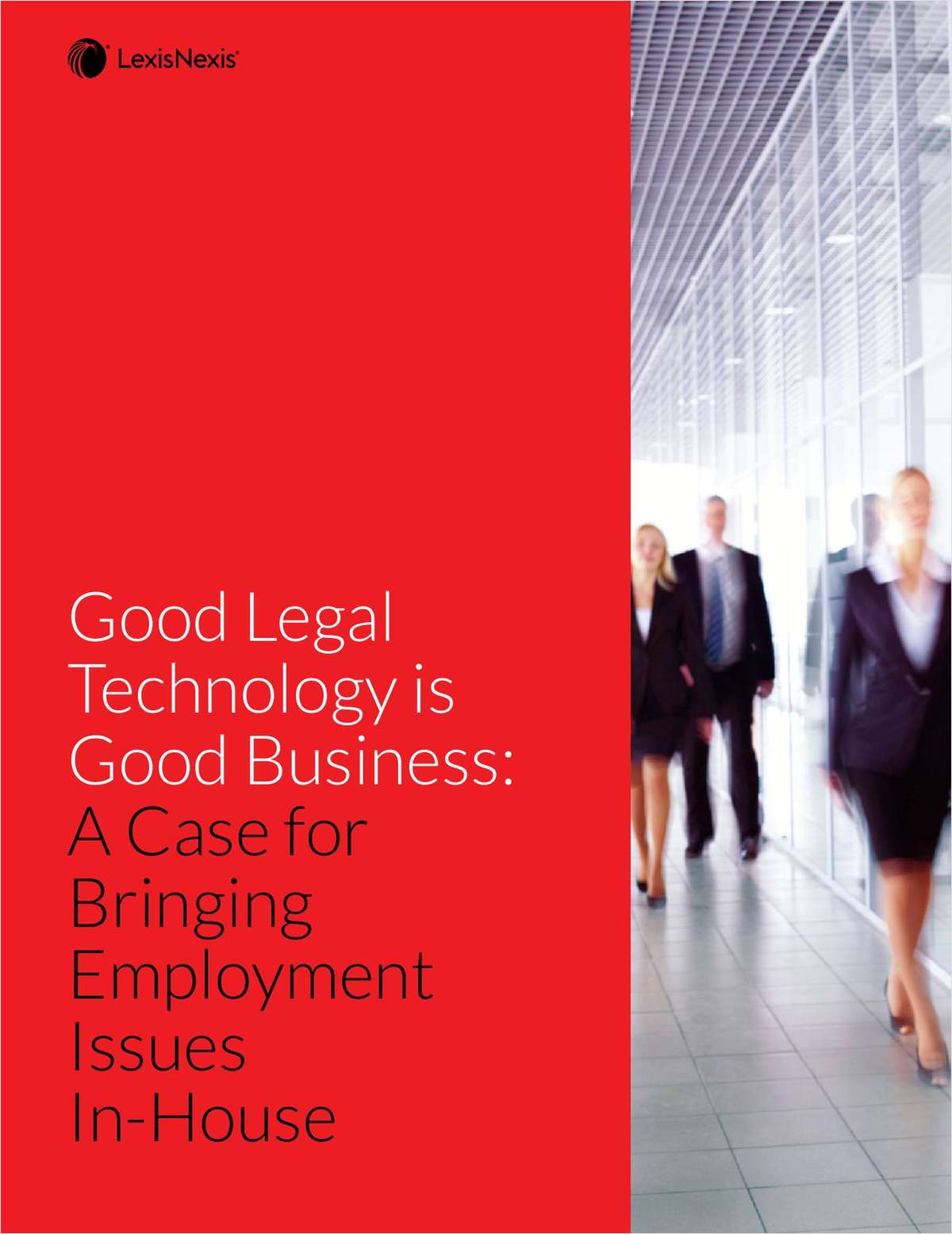0 results for ''Brach Eichler''

Respondeat Superior Applies to Online Activity
Using the Internet, employees can copy and distribute confidential information from their office computer, send sexually harassing or threatening messages via e-mail, and engage in fraudulent activities. A properly prepared and fully implemented Internet-use policy is among an employer's best defenses against liability under respondeat superior.
Congress Has Come to Control Spam, Not to Bury It
Cyberlaw: Contrary to public opinion, the CAN-SPAM Act does not make spam unlawful; it attempts to regulate it. But it may not be successful.
'Dual-Use' Spam Preys on the Charitable
"Dual-use" spam is the latest way unethical marketers are getting around the Controlling the Assault of Non-Solicited Pornography and Marketing Act of 2003. With this mutation, spammers send out unsolicited, noncommercial e-mails to raise money for charity, which is not regulated by the CAN-SPAM Act. After raising the money, the spammer adds the e-mail addresses of people who donated to his commercial target list. Is eternal spam the new price of good karma?
Top 10 Things Human Resource Professionals Need To Know About Internet Law
Internet law has developed in lock step with the Internet, and both interpenetrate every aspect of a human resource professional's function. From how to handle employee data to accomodating disabled Internet users to preventing security breaches that an employee's juvenile family members might cause from a computer in the home that is also used for work purposes, numerous new legal difficulties await the unprepared human resource professional.
Court To Weigh Fee Charged to Tenants For Landlord's In-House Legal Work
The New Jersey Supreme Court will decide whether a flat legal fee provision in a lease constitutes illegal fee splitting to the extent it exceeds the value of legal services provided.

Internet Civil Rights Governed By Federal Analysis
Independent state interpretation of civil rights cannot apply to Internet transactions because of the multijurisdictional characteristics of the Internet.
Internet Expands Trademark Infringement
While it's true that as an information conduit, the Internet reduces the likelihood of confusion by allowing the buyer to approach an online purchase with more sophistication, the technology also bolsters the likelihood of confusion among consumers using the Internet by allowing new, unlawful uses of trademarks. Also, the traditional use of a mark on the Internet (to identify the source of goods) is likely to amplify certain trademark characteristics.

Trending Stories
- 1AI: Looking at Its Impact on the Legal Profession in 2025 and Beyond
- 2Law.com's Top 100 Verdicts of 2023
- 3Dallas Firm That Won $45M Talc Verdict Scored Again: Jury Hits J&J With $260M
- 4A Novel (and 'Funnier') Ranking System for Law Schools: How Many Mentions in the Times
- 5Updated Stanford Report Finds High Hallucination Rates on Westlaw AI
More from ALM
- Morgan & Morgan Class Action Attorneys Detail Pathway to Success Within Cybersecurity and Data Privacy Practice 1 minute read
- Holwell Shuster & Goldberg Partners Leverage 'Hostile' Witnesses to Secure $101 Million Verdict Against Walmart 1 minute read
- Legal Speak at General Counsel Conference Midwest 2024: Mike Andolina, Partner, White & Case 1 minute read
Resources

Good Legal Technology is Good Business: A Case for Bringing Employment Issues In-House
Brought to you by LexisNexis®
Download Now

Insights and Strategies for Effective Succession Planning in AM Law 100 Firms
Brought to you by Gallagher
Download Now

State AI Legislation Is on the Move in 2024
Brought to you by LexisNexis®
Download Now

2024 ESI Risk Management & Litigation Readiness Report
Brought to you by Pagefreezer
Download Now



